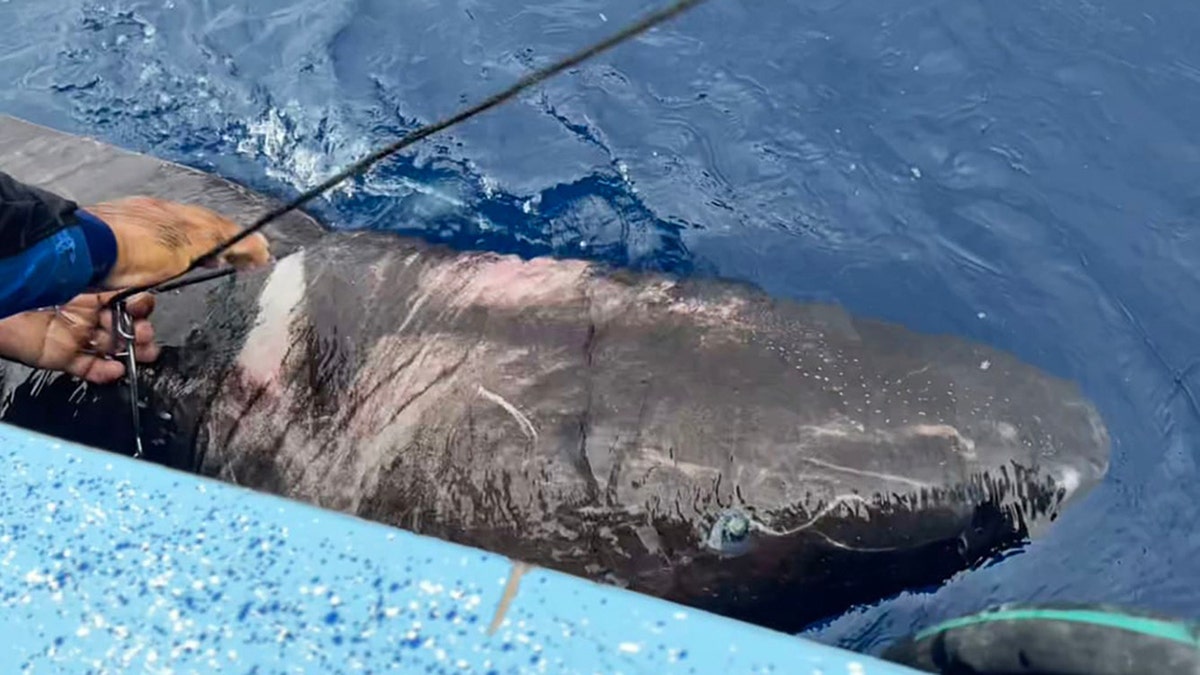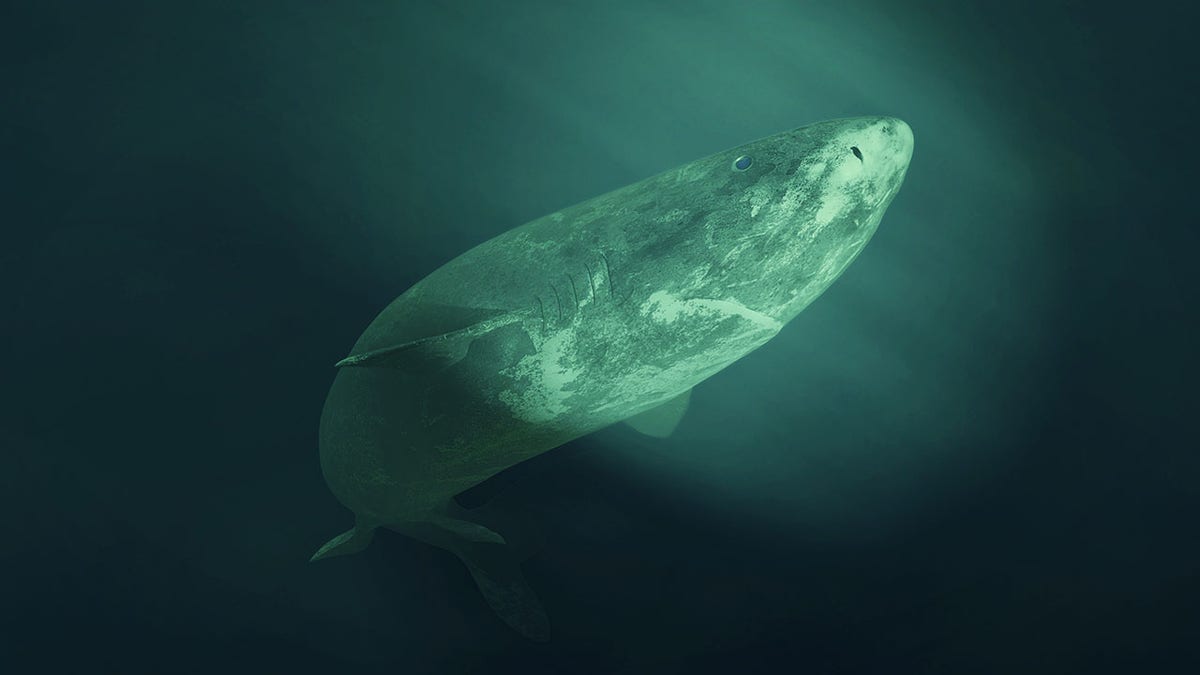Griff Jenkins plunges into shark-infested waters
Fox News anchor Griff Jenkins takes a trek off the coast of Florida to swim with sharks on ‘Fox News Live.’
A Greenland shark was found at a coral reef off the coast of Belize.
The shark, known as an "enigma to science," is half-blind and normally lives in the freezing Arctic and North Atlantic oceans.
Devanshi Kasana, a biologist and Ph.D. candidate at Florida International University’s Predator Ecology and Conservation lab, was reportedly fishing together with other local fishermen when the group caught this shark.
SHARK QUIZ: HOW WELL DO YOU KNOW YOUR SHARKS THIS SUMMER?
The fishermen were performing the last check on their lines for the day when they snagged this smooth stone, blue-eyed shark, as Fox Weather reported.

This Greenland shark was found off the coast of Belize — a rare location for the cold-water shark. (Devanshi Kasana)
"At first, I was sure it was something else, like a six-gill shark that are well known from deep waters off coral reefs," said Kasana, who together with colleagues published a piece about the shark's capture in the science journal Marine Biology in July.
"I knew it was something unusual, and so did the fishers, who hadn’t seen anything quite like it in all their combined years of fishing," she also reportedly said.
SHARKS SPOTTED NEAR FLORIDA SHORE AS SIGHTINGS CONTINUE: ‘GET OUT OF THE WATER!’
After conferring with the Sharks & Rays Conservation Research director at Mote Marine Laboratory & Aquarium in Sarasota, Fla., it was determined that this creature was most likely a Greenland shark.
Due to its larger size, it could also be a Greenland shark and a Pacific sleeper shark hybrid.

Local Belizean fishermen were out searching for tiger sharks when they stumbled on the Greenland shark. (iStock)
Regardless, this find was incredibly rare.
A Greenland shark has been known to live upward of 500 years — making these sharks the longest-living vertebrate known to science.
KILLER WHALES HUNT 9-FOOT GREAT WHITE SHARK IN DRONE VIDEO
The sharks can live for so long due to their slow speed of life.
They grow approximately a third of an inch per year and can get to more than 20 feet in length.

A Greenland shark swims in the northern Atlantic Ocean. (iStock) (iStock)
Kasana said the nearly 9,500-foot-deep waters off the coast of Belize were deep and cold enough for a Greenland shark to thrive.
CLICK HERE TO GET THE FOX NEWS APP
"If we were to catch another individual it would be sheer luck, we don’t set our lines in a way that targets Greenland sharks," Kasana said, as NPR reported.









































